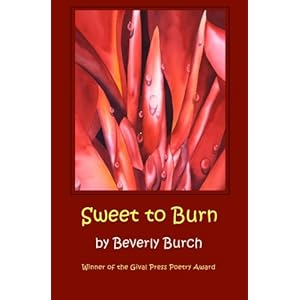Heart of the Order: Baseball Poems. Edited by Gabriel Fried, Foreward by Daniel Okrent. Persea Books. New York, N.Y. 2014.
Although I know as little about baseball as it is possible to know and am still convinced it is a pastime and not a sport — this compelling collection, Heart of the Order, makes a riveting case for baseball as a platform from which the rest of the United States is clearly visible.
Fielding
I like to see him in center field
fifty years ago, at twenty-two,
waiting for that towering fly ball—
August, Williamsburg, a lazy afternoon—
dreaming how he'd one day be a pro
and how he'd have a wide-eyed son to throw
a few fat pitches to. An easy catch.
He drifts back deeper into a small patch
of weeds at the fence and waits. In a second or two
the ball is going to stagger in the air,
the future takes him to his knees: wheelchair,
MS, paralysis, grief. But for now
he's camped out under happiness. Life is good.
For at least one second more he owns the world.
RONALD WALLACE
...
These poems are as broad as the widest dream of America and filled all the hope our best selves can muster. Fried really has done a masterful job of collecting excellent poems that happen to be about baseball - poems that play themselves out over the pageant of the America's national pastime but in fact tell us important things we need to know about hope.
A Baseball Team of Unknown Navy Pilots,
Pacific Theater, 1944
Assigned a week's good bunt, run, throw,
Makeshift uniforms, long practices,
Then games, playoffs, and a round of photos
Stark as this one slipping from its frame,
Where hats, gloves, bats in hand these stood
Lined up and focused, smiling and unnamed—
Till the shutter clicked and each went back,
Retracing zagged geometries
Of the navigator's elbowed tack
And smudged replotted overrule
Pulled from a fix when miles off track
They crabbed the wind and calculated fuel;
And then the wide sleep secret fleet below
Blacked out until the climbing tracers
Sent their bright concussive flak
And going on was all. Time wound,
And some planes banking, others not;
And the one, tail-riddled, easing down,
Crew tossing weight for altitude
Till smoke and someone spelling out a fix.
Then static graveling the words.
And still these faces, whose names we never got,
As all we know is they returned to bases,
Went up when told, came home or not.
WYATT PRUNTY
...
And it's all in here. Every single thing that there is to love about baseball and America is in this book. Every nook and cranny is available in these generous at-bats. Fried has chosen to create a patchwork quilt portrait of baseball and America. In this case the terms may even be inter-changeable.
from While Sylvia Plath Studies The Joy of
Cooking On Her Honeymoon in Benidorm,
Spain, Delmore Schwartz Reclines In The Front
Seat Of His Buick Roadmaster
While Sylvia Plath studies The Joy of Cooking on her honeymoon
in Benidorm, Spain,
Delmore Schwartz reclines in the front seat of his Buick
Roadmaster
listening to a Giants game on the car radio.
The car's parked on his farmland in Baptistown,
New Jersey, where obstinate plants attempt survival
at great odds, their vital spikes insulting and defending.
The thistle fans its prickly leaves,
the burdock hustles, miserly. Its dry-as-death seed
will outlast you, traveler, its dry-as-hope seedling will use you,
tenacious as the leftover god, the eye-of-the-needle god,
the straggly one, the Shylock, who lent you your life,
who chose this desert wilderness for exile.
He manifests the empty field for you to wander.
He removeth your brilliance and set you in a basket
alone among the rushes. He maketh the coral of Seconal
and suffers you to recline in the evergreen Dexamyl shade,
while Ernie Harwell calls the last out
(Willie Jones popping up to Al Dark)
in the car's radium glow. Do you see it, American poetry?
The happy arc of the ball above Shibe Park—
a moment of promise falling off, coming to nothing.
Disappearing to atoms. Giants win, 4-2.
AMY NEWMAN
...
So I'm reading these baseball poems and even though I'm not much on baseball, I'm really enjoying the read but I'm thinking to myself what this collection needs is a David McGimpsey poem. I don't know McGimpsey personally but I know he is Mr. Baseball. And then I turn the page and there he is, with an excerpt from his excellent "The History of Baseball". It won't bring the Expos back to Montreal but it is heartening none the less.
And there you have it. Heart of the Order is devoted to the long fly, the tumbling knuckleball and those moments that baseball freezes in time with the startling clarity of diamonds.
"Poets write about baseball for the same reason they write about nightingales and urns.. [there is] both truth and beauty in our wonderful game."
—Daniel Okrent, from the Foreward
www.perseabooks.com










